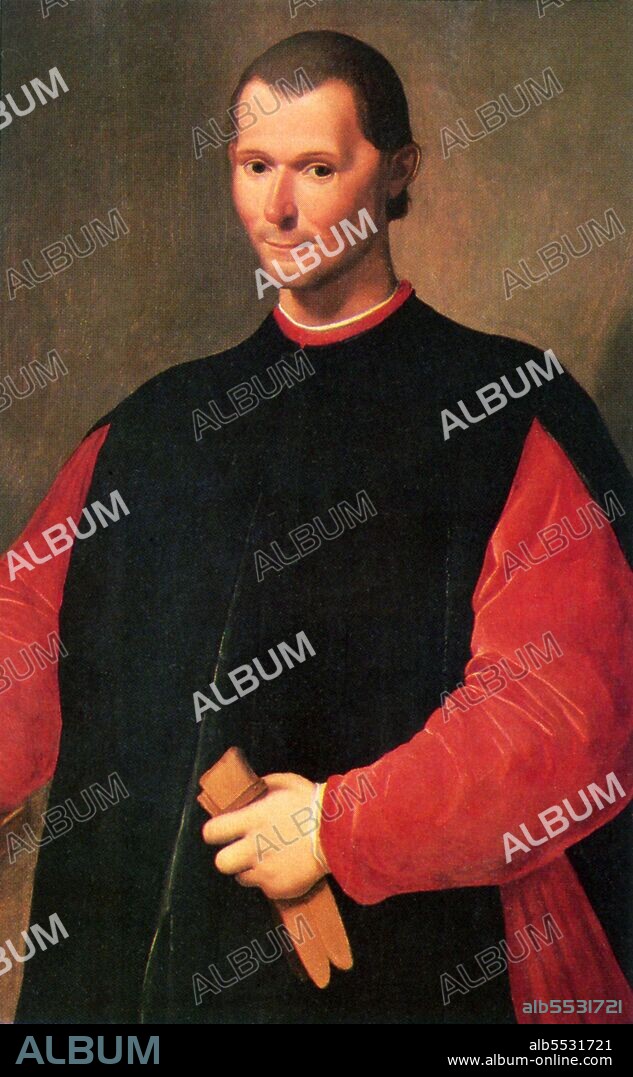alb5531721
Italy: Niccolo Machiavelli (1469-1527), Florentine historian, diplomat, political philosopher and writer. Oil painting by Santi di Tito, c. late 16th century

|
Añadir a otro lightbox |
|
Añadir a otro lightbox |



¿Ya tienes cuenta? Iniciar sesión
¿No tienes cuenta? Regístrate
Compra esta imagen

Título:
Italy: Niccolo Machiavelli (1469-1527), Florentine historian, diplomat, political philosopher and writer. Oil painting by Santi di Tito, c. late 16th century
Descripción:
Ver traducción automática
Niccolò di Bernardo dei Machiavelli (3 May 1469 – 21 June 1527) was a Florentine historian, politician, diplomat, philosopher, humanist, and writer during the Renaissance. He was for many years an official in the Florentine Republic, with responsibilities in diplomatic and military affairs. Macchiavelli was a founder of modern political science, and more specifically political ethics. He also wrote comedies, carnival songs, and poetry. His personal correspondence is renowned in the Italian language. He was Secretary to the Second Chancery of the Republic of Florence from 1498 to 1512, when the Medici were out of power. He wrote his masterpiece, The Prince, after the Medici had recovered power and he no longer held a position of responsibility in Florence. His views on the importance of a strong ruler who was not afraid to be harsh with his subjects and enemies were most likely influenced by the Italian city-states, which due to a lack of unification were very vulnerable to other unified nation-states, such as France.
Crédito:
Album / Pictures From History/Universal Images Group
Autorizaciones:
Modelo: No - Propiedad: No
¿Preguntas relacionadas con los derechos?
¿Preguntas relacionadas con los derechos?
Tamaño imagen:
3154 x 5100 px | 46.0 MB
Tamaño impresión:
26.7 x 43.2 cm | 10.5 x 17.0 in (300 dpi)
Palabras clave:
CIENCIAS POLITICAS • DIPLOMACIA • EMBAJADOR • ESCRITOR • ESTILO RENACENTISTA • FILOSOFIA • FILOSOFO • FLORENCIA • FLORENTINA • HISTORIA • HISTORIADOR • HISTORICO • ITALIA • ITALIAN • ITALIANA • ITALIANO • ITALIANOS • LITERATO • LITERATURA • LITERATURE • NICOLÁS MAQUIAVELO • RENACENTISTA • RENACENTISTAS • RENACIMIENTO
 Pinterest
Pinterest Twitter
Twitter Facebook
Facebook Copiar enlace
Copiar enlace Email
Email
